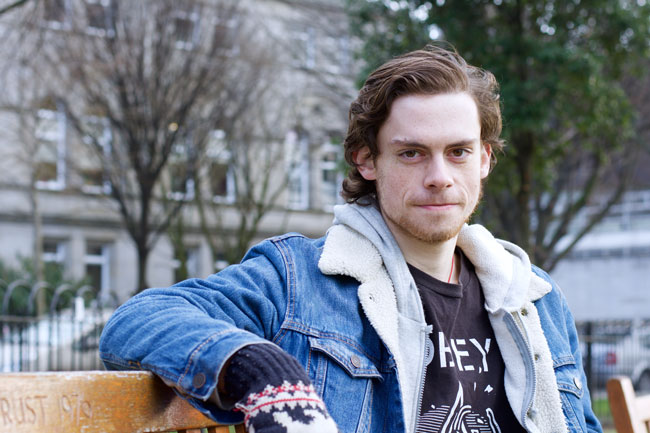Martial arts have been central in Ben Pignatelli’s life since childhood. At the age of just five, he took on everything from judo and karate to kickboxing. His father was his source of motivation and also trained him in aikido, a martial art which encourages blending an attacker’s movements with one’s own to control their action. He also achieved a black belt in Karate, keeping his approach to martial arts broad.
Four years ago, Pignatelli began training in kung fu, and its impact on his life since has been huge. Pignatelli believes training is the best possible start to the day, which is appropriate because kung fu literally means “improving something over a long period of time”. This captures the essence of kung fu and how martial arts are, for many, a way of life.
Speaking to The University Times, Pignatelli says that the best training advice he could give is to “train somewhere, sometime, every single day”. This is an ethos that has been installed in him since he started training as a young boy. He used go visit his uncle on weekends and they would watch Crouching Tiger, Hidden Dragon. He would “end up falling asleep after fifteen minutes” but, finallym he finished watching the whole film when he was 17 and his love for martial arts has continued to grow.
Pignatelli last year training in Wudang, China, where he met his training brother, Brien Kelly, and together they embraced their new way of life. Pignatelli willingly shared the story of his adventure which, after overcoming the initial culture shock, became an unforgettable experience. Being used to “controlled, continuous sparring”, he felt like he thrown in the deep end in Wudang. There they fought three rounds, which adds up to 15 minutes of tough sparring. Pignatelli describes it feeling like he was in “a bad Rocky film, swinging with everyone bleeding”, but it didnʼt take him long to adjust to these harsh training conditions, thanks to his lifetime of training. A typical day of training in Wudang went something like this: You wake up at 4.45am for 300m hill sprints to the local mountain peak. From 5am to 7am you practise Qi Gong, or breathing exercises. The day is spent stretching, training and eating, followed by two hours of Tiger Palm training (technique exercises) from 7pm, followed by an hour of meditation before sleep.
Soon, he was absolutely loving his time there and he admits that he would have stayed but he “ran out of money and had to come home again”.
I spoke to Pignatelli at the Pav, which had begun to fill up as lunchtime approached. It was cold and dreary outside, yet he was beaming as he shared his passion for kung fu, remaining very relaxed and calm throughout the interview. Meditation plays a huge role in kung fu and it was noticeable that Pignatelli seemed to be well organised and focused on the day ahead. It helps that he begins his day with standing meditation and a slow breathing exercise “as the sun is rising”.
Sport takes huge dedication and discipline, and it can be tasking for students to balance sport with college and other commitments. Ben is “struggling through”, as are most sports enthusiasts who choose to sacrifice some of their allocated time for college work to training. Pignatelli admits that he allows sport take control and eat into his time : “If it comes down to only having time to do a reading or go for a run, Iʼll always pick the exercise every time.” Even if it means being up at 6am for training and falling asleep by his 10am lecture.
Pignatelli brought back a wealth of experience from China and decided to spread his knowledge by opening his very own kung fu club in Drumcondra, called Wudang Ireland. Explaining that the club opens weekdays at 7am, Pignatelli laughs: “It was also the only time we could rent the hall.”
Combat sports are rapidly growing in popularity across Ireland and kung fu is no exception. Pignatelli himself continues to train hard and hopes to return to China next October in order to compete in a competition. Until then, he will be holding court at his club, where all Trinity students are welcome to train and can make a donation towards the club if they wish. This donation-based method of paying for training is the traditional way of practising kung fu, which should come as a pleasant form of culture shock for some of his visitors.







